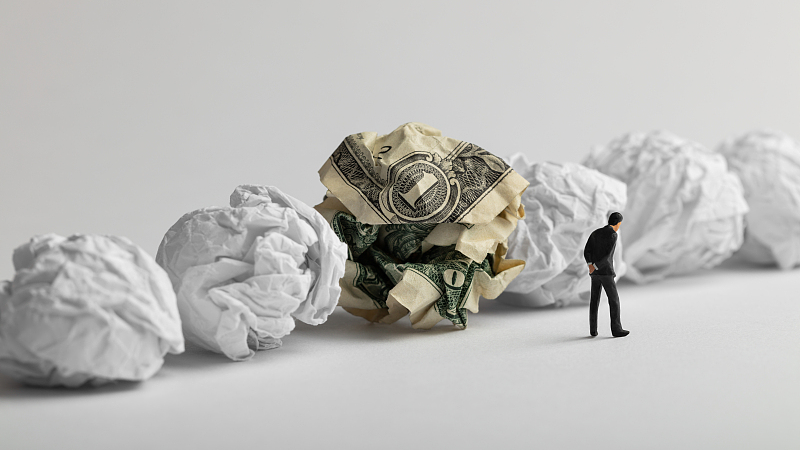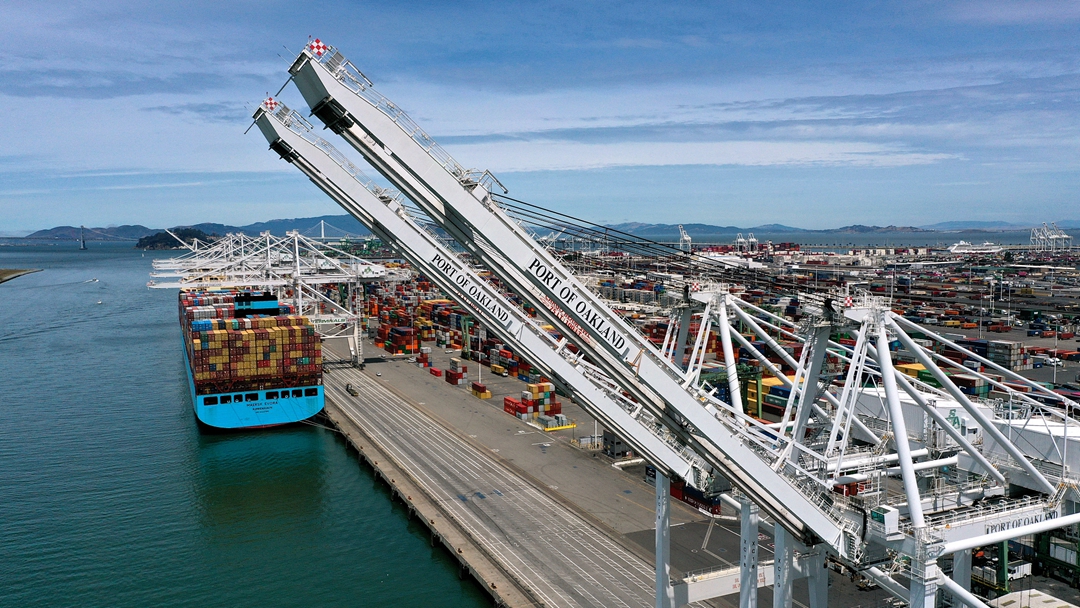
Editor's note: Bradley Blankenship is a Prague-based American journalist, political analyst and freelance reporter. The article reflects the author's opinions and not necessarily the views of CGTN.
U.S. Senators from both major political parties on February 15 discussed potential solutions to the country's worrying inflation, coming off a 7.5 percent year-on-year CPI gain in January – a 40-year high. The Federal Reserve has announced that it will hike rates at its next meeting in March to cool the economy in hopes of stifling inflation and Democratic Senators vowed that next month will also see a lot of action on the issue from their end.
Following a closed-door session of Democratic Senators, Senate Majority Leader Chuck Schumer told reporters about a few areas of the economy that his party would try to address. Among them were lowering prescription drug and food prices, easing semiconductor shortages and suspending a federal gasoline tax.
Since this is such a major political issue that could blow the doors open for a Republican landslide in the 2022 midterm elections, Republicans might likely abandon talks with their Democratic colleagues or fail to give them the necessary votes on any legislation. But aside from the political failings, is the U.S. government even equipped to deal with this issue?
The Fed's go-to solution, which is to hike rates and cool the economy down, may not cut it alone. That's because slowing the economy down would, in essence, be choosing a recession – and that would be a far bigger hardship for most Americans than inflation since it would mean job and wage loss. This means that there needs to be a policy response that goes above and beyond the Fed.
However, what first needs addressing is why exactly inflation is such a problem. The conventional narrative goes that inflation is going up because of rising wages, due to the pandemic driving so many from the workplace, and pent-up consumer demand that was also made more gratuitous because of the pandemic stimulus.

An aerial drone view of ships berthed at the Port of Oakland in California, U.S., June 15, 2020. /CFP
An aerial drone view of ships berthed at the Port of Oakland in California, U.S., June 15, 2020. /CFP
The problem with this is that wages have gone down in real terms, meaning that inflation has undermined the wage gains made thanks to a more advantageous labor market for workers. Thus, the real problem is not a supply-side issue from labor inputs but corporations raising prices for the simple reason that they can. Thus, the lack of competition is a primary driver that is hardly discussed in the media let alone by policymakers, though it must be talked about.
We have seen countless small businesses go out of business, which has only entrenched monopolies across the entire economy. Just looking at the major fossil fuel companies, we can see that BP posted its highest profits in 8 years; Exxon, Chevron and Shell posted the highest in 7 years and gas prices are at an 8-year high. This is not a mere coincidence.
Likewise, the White House even acknowledges the damage brought on by monopolies in the food industry. According to the White House's economic advisers, four of the biggest meat-processing companies used their market power to drive up meat prices and underpay farmers during COVID-19 to boost their profits by 300 percent.
Former secretary of labor Robert Reich wrote in a recent newsletter that Congress must bolster labor protections, which he says are the root problems in the U.S. economy that are perpetuating inequality.
Specifically, Reich says the U.S. needs to update its 1938 Fair Labor Standards Act that, while establishing a typical 40-hour workweek and compensation for overtime, does not set limits on overtime which makes the U.S. the only industrialized country to not have such limits. Forced overtime is thus the norm for many workers.
While this is an extremely important point, I think the more important – though, admittedly in the context of American politics, more drastic – step is to pass tougher anti-monopoly legislation. One such bill, the Pandemic Anti-Monopoly Act introduced by Senator Elizabeth Warren and Congresswoman Alexandria Ocasio-Cortez in 2020 addresses this but could be made stronger to break up major monopolies that are unfairly driving inflation.
The problem is that Congress is controlled by the same monied interests that are controlling consumer prices and its favored policies, such as the China-focused America Competes Act, for one example, would entrench these same monopolies – thus stoking even more inflation. That U.S. inflation is inexorably tied to the country's historical inequality means it is a tricky issue that the government may not be able to solve.
(If you want to contribute and have specific expertise, please contact us at opinions@cgtn.com.)

